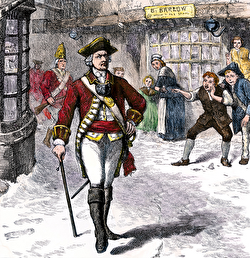
Once upon a time, professors of politics and other know-alls said that people don’t like being asked to vote. I never really agreed because, come election time, you can say what you like to the oleaginous smoothie-chops on your doorstep and they’ll just suck it up and continue begging for your support. After the vote, of course, the boot is on the other foot.
Only a few weeks ago, Theresa May seemed to share the received wisdom about dislike of elections. She told us — repeatedly — that there would be no general election before 2020 because it would “destabilise” the country.
Then she stood on her head.
Then she did it again with her manifesto.
The election had been called to establish a strong mandate in Brexit negotiations with the EU. Yet it turned out that she had been right about the dangers of destabilisation, for her manifesto immediately upset much of her core Tory vote by changing arrangements for pensions and social care for the elderly. No amount of “clarification” could put that right. Instead of banging on about steadfastness in talks with Brussels, they were soon being nickel-and-dimed on social policy.
History will doubtless judge David Cameron to be one of the worst prime ministers in modern times for putting the interests of his party above what he claimed to be the interests of the country. It is a pity he was too slick to heed the old QC’s advice about never asking a question to which you don’t know the answer. He is now advertising posh garden sheds and writing his memoirs.
Whoever inherited the tenancy of Downing Street would inevitably be left the job of clearing up the horse manure after the parade had passed. The spectators — the voters — shrank their heads into their shoulders and walked away from the mugging they had witnessed.
There is nothing necessarily wrong with this. Few of us like having to make decisions, and the process of parliamentary elections enables us to delegate the sordid business to others who have the arrogance, insouciance or idealism to make them for us. We then want to be left alone to grumble about what a useless bunch they are.
The problem is that we all now know what the nation thinks about the EU (or we know what just over half the nation thinks about it — it is the quality of democracy that the vote of the Cambridge economist is worth exactly the same as that of the village idiot). All that remains now is to put the decision into effect.
What sort of deal do our would-be leaders want? How much of our money are they prepared to pay to get it? Of course, no one goes into negotiations having already disclosed their bottom line. So we still do not know.
We will still be ignorant next Thursday.
Last time, two-thirds of us took the minimal trouble to vote in the 2015 general election. I shall be impressed if a similar number make the effort this time. Is it because the campaigns seem so unusually dull: the Tory leader who told us leaving the EU would be a disaster yet who now wants to manage the divorce; a Labour leader we have never seen having to make the hard choices that are the inevitable necessaries of holding a portfolio?
We get the politicians we deserve, as de Tocqueville or whoever said. What, therefore, does the choice we are being offered say of us? On the one hand we have Mrs May, a woman who has been in government seven years and demonstrably failed in her main task of reducing immigration. On the other is Jeremy Corbyn, a man whose parliamentary career consists of 500 rebellions — against his own party. A distaste for cruelty prohibits me from mentioning Tim Farron, the Liberal Democrat leader, a man who must be pleasantly surprised to be recognised when he sits down to family lunch. It is not an offering to make Demosthenes take the pebbles out of his mouth.
I interviewed both Mrs May and Mr Corbyn this week. In manner they resembled a nervous geography student and an ageing geography teacher. The odd thing is that Mrs May is a former student of geography (or “colouring in”, as it was known to other Oxford students). She now dresses in the style of a Maidenhead matron on her way to a Tory wine-and-cheese evening. She looks nervy on television. Mr Corbyn’s academic career ended when he dropped out of a course in trade union studies at North London Poly. He retains the style of his lecturers and goes into avuncular mode when questioned.
We leapt through the requisite hoops. But, because the biggest question was settled in last year’s referendum, it was hard to escape feeling that the campaign was taking place in a parallel universe.
Mrs May decided to go for a vote at a time when opinion polls suggested she could only increase her parliamentary majority. Since then — if we believe the polls (and no one should) — Labour has closed much of the gap. Mr Corbyn has had a good campaign and kept most of his colleagues, such as putative home secretary Diane Abbott, largely out of sight. His steady plodding away at nationalisation of selected “services” appeals to many (particularly to those with no recollection of British Rail, or the Post Office’s appalling telephone service).
A good number of Tories are rattled by the confusion of ideas in their party’s manifesto and the hamfistedness of the campaign. They blame Mrs May’s two unelected advisers, Nick Timothy and Fiona Hill. “I fear that she and her Toxic Twins will interpret any significant majority as a mandate,” one of them told me this week. “[A majority of] anything over 20 and we’ll be putting a beggar on a horse.”



